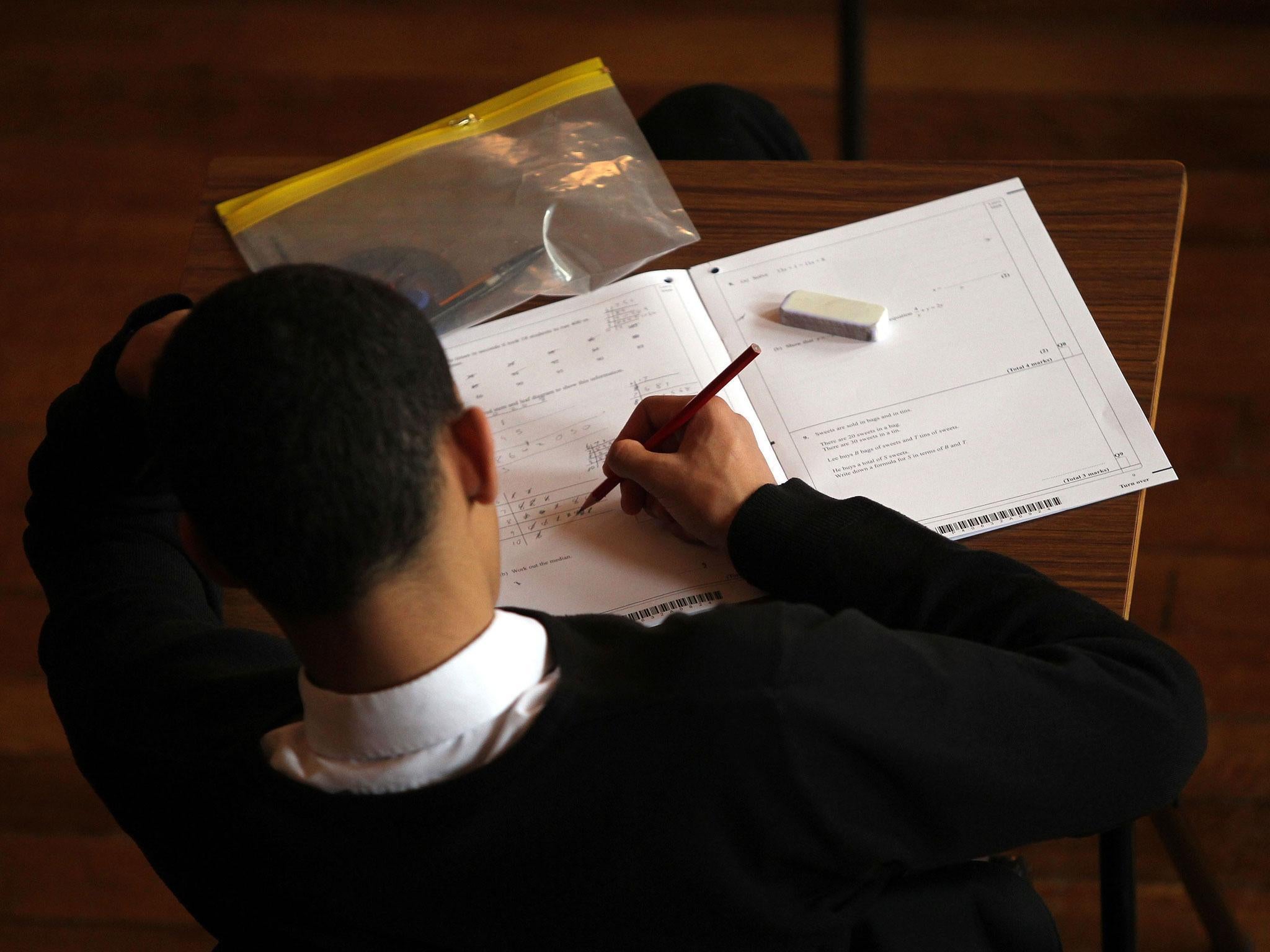English SATs exam 'left pupils in tears because it was too middle class'
‘The life experiences you needed to access the test were quite unusual. I mean, to put yourself in the place of somebody riding a giraffe, I found that quite hard to envisage’

Your support helps us to tell the story
From reproductive rights to climate change to Big Tech, The Independent is on the ground when the story is developing. Whether it's investigating the financials of Elon Musk's pro-Trump PAC or producing our latest documentary, 'The A Word', which shines a light on the American women fighting for reproductive rights, we know how important it is to parse out the facts from the messaging.
At such a critical moment in US history, we need reporters on the ground. Your donation allows us to keep sending journalists to speak to both sides of the story.
The Independent is trusted by Americans across the entire political spectrum. And unlike many other quality news outlets, we choose not to lock Americans out of our reporting and analysis with paywalls. We believe quality journalism should be available to everyone, paid for by those who can afford it.
Your support makes all the difference.A quarter of primary school students were unable to finish the SATs reading test in May 2016, and exam regulator Ofqual has concluded that it was “unduly difficult” for some.
More than 550,000 10- and 11-year-olds took the exam, which contained a passage about children wandering away from a garden party to row across a lake.
Teachers from Teesside suggest that contents of the test may have been “relatively harder” to engage with for students who come from less privileged backgrounds.
Some teachers went so far as to call the key stage 2 test paper, which was introduced as part of a brand new national curriculum, “too middle class”.
A representative of Special Educational Needs and Disabilities (SEND) told Ofqual: “I think it’s quite middle class. If you like The Secret Garden, Tom’s Midnight Garden, all those sorts of things then you’d be fine… but really if not – which most children aren’t, let’s be honest – there’s nothing much to grasp on to that you’re familiar with.”
Another stated: “The life experiences you needed to access the test were quite unusual. I mean, to put yourself in the place of somebody riding a giraffe, I found that quite hard to envisage.”
In a report released earlier this week, it stated: “As soon as the reading test had been sat, teachers began to express concerns over its accessibility.
“They were particularly concerned that the test may have been unduly hard to access for pupils with lower levels of attainment, including those with SEND.”
Concerns from teachers and parents included that some contents of the texts had an “antiquated feel”, and the report suggests the 2016 reading booklet was harder to read than both the sample booklet and the 2017 booklet.
An anonymous headteacher who created The Primary Head’s Blog wrote: “As soon as the reading paper had been completed news began to spread about the nature of the reading material. The bar had been raised. The opening paragraph was appropriate in word length for 15-year-olds only.
“Every child cried at some point during the test. Nobody finished it.
“The texts were elitist and suitable for white middle-class English children born in 1823.”
Ofqual went on to conclude: “On the balance of evidence presented, it seems plausible that the combined impact from multiple ostensibly negligible challenges – stemming from both question and text factors – may have rendered the 2016 reading test unduly hard to access for at least some pupils.”
When the results were released, only two-thirds of pupils reached the expected standard in reading.
Asked to comment on last year’s exams and their difficult nature, a Department for Education spokesperson told The Independent in an email: “A good primary education lays the foundations for success at secondary school and beyond. This year’s key stage 2 results show that our curriculum reforms are starting to raise standards. It is important to have an assessment system that helps to drive up academic standards.
“That’s why we have reformed the primary assessment system in England to free up teachers to educate and inspire young children, while holding schools to account in a proportionate and effective way.”
Join our commenting forum
Join thought-provoking conversations, follow other Independent readers and see their replies
Comments